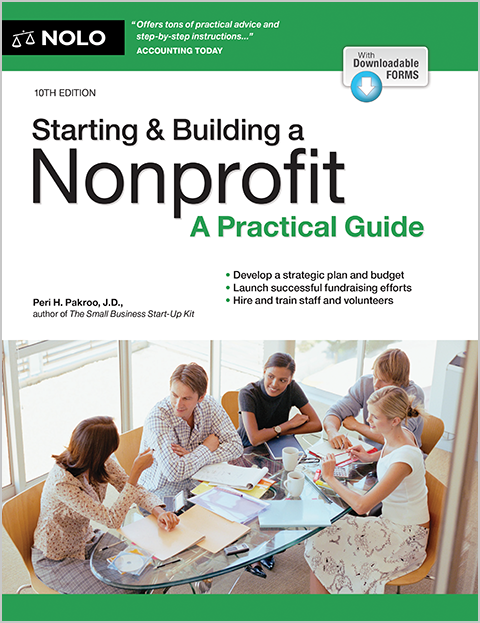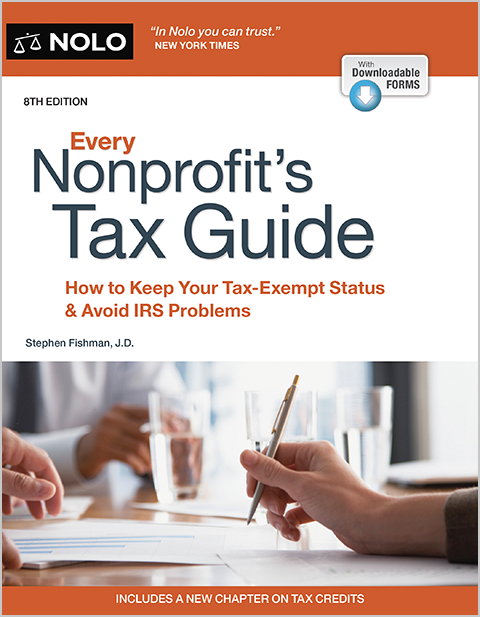Find out the basics of holding an annual meeting for your nonprofit.
For most nonprofit organizations, the annual meeting is the time for board of director elections, evaluating the organization's progress towards its mission, and setting goals for the upcoming year. In many states, nonprofits must hold at least one meeting a year, although most organizations go beyond the minimum requirement and hold monthly or quarterly meetings.
Why Your Nonprofit Should Have Annual Meetings
Even if your organization has regular meetings, your nonprofit could benefit from scheduling a special annual meeting to devote time to important business, such as:
- electing new board members
- evaluating the executive director's performance
- reviewing the organization's financials and setting the budget
- evaluating program achievements
- setting goals for the upcoming year, and
- reviewing nonprofit policies.
When you take the time to attend to these matters at your annual meeting, you will encourage the growth and success of your nonprofit. Moreover, donors like to see that your board is fulfilling its duties in monitoring the organization's progress towards its mission.
Setting the Date and Sending Notifications
Take a look at your bylaws and formation documents to determine the date of your annual meeting and the notification requirements. Commonly, your bylaws will provide the month of the meeting, and the directors will agree on the date. If the date is not specified in your bylaws, consider having your annual meeting the month after your fiscal year ends. This will give you an opportunity to review a full fiscal year and your annual tax return.
Your nonprofit's bylaws might provide notification requirements, including the number of days in advance the secretary (or other designated officer) must send notice to the directors (and members, for membership nonprofits), and the method of communication (typically by email, phone, or mail). If the bylaws do not specify when or how to send notifications, review the nonprofit laws of your state.
Director Elections and Board Evaluation
One of the main purposes of the annual meeting is to elect the directors who will serve on the board. Review your bylaws to determine term lengths and voting procedures. For more information about electing a strong board of directors, see Building Your Nonprofit's Board.
At the annual meeting, the directors might also consider the overall structure of the board. As your nonprofit grows, you might add directors to the board, change the quorum requirements (the minimum number of directors who must be present at a meeting to transact business), or create new committees (like a fundraising committee). Be sure to amend your bylaws to reflect these changes.
Executive Director Review
If your nonprofit employs an executive director (the head employee who supervises the day-to-day operations of the nonprofit), that individual likely reports to the board. Your board can take time at the annual meeting to plan for the executive's annual performance review, or to discuss the results of the review. The board might also evaluate and revise the executive's job description, duties, and compensation.
Review of Finances and Programming
The treasurer should provide financial reports for the board to review, including income statements, balance sheets, and the organization's tax return. Read more here about the types of financial reports your treasurer should prepare. Based on the financial reports and strategic plan, the board will set the budget for the upcoming year.
The board should take time to review the prior year's activities and programs, to determine whether the organization is fulfilling its mission and meeting its goals. For example, a food bank with a mission of reducing hunger might consider the number of people served and the amount of food distributed. If the organization is not meeting its goals, the board might adjust its goals for the upcoming year, and come up with strategies to improve the organization's impact, such as creating a volunteer recruitment plan or hiring new employees.
Policy and Plan Review
The annual meeting is a good time to review your organization's plans and policies. Doing so will ensure that your board is aware of your current policies and following them, and that they reflect the organization's mission and goals. Some of the policies and plans your board might review include:
- board of directors onboarding procedures and training
- bylaws
- diversity and inclusion policies
- fundraising strategies
- governance policies (such as conflict of interest policies)
- human resource policies (including topics like employee evaluations and compensation)
- insurance plans
- legal compliance policies (such as a schedule to review the organization's licenses, state filings, and tax returns)
- media relations
- record retention plans
- safety protocols
- strategic plan (read more here about strategic planning)
- technology policies (which might include cybersecurity plans and hardware replacement schedules), and
- volunteer management.
For more information about nonprofit policies, check out Nolo's book Starting & Building a Nonprofit: A Practical Guide, by Peri Pakroo. If your board has questions about whether your policies comply with state law and federal tax code, reach out to an attorney for review.



